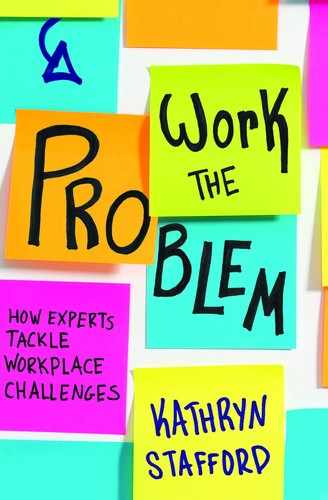TAKE 1
Commentary by Tom Kaiden
Tom Kaiden is the chief operating officer of Visit Alexandria, in Alexandria, Virginia.
I particularly like this case because it reflects a common situation today: external disruption exacerbating internal tension. Open Wide Media is facing environmental pressure because of the economic disruption in the publishing industry. Yet all the internal players, from ownership down to interns, are trying to play by the old set of rules. And the longer they try, the more intractable the problem will get.
The publishing industry was extremely profitable before the digital age, but the major revenue source from that model—print advertising—is drying up. Certainly some online ad revenue has emerged, but not nearly as much as has been lost. Yet, Open Wide Media continues to operate much as it always has. Currently the company breaks down into seven levels of management:
1. Jack and Betsy (company heads)
2. Dan (editor-in-chief)
3. Vicki (managing editor)
4. Rebecca (senior editor)
5. Claire (associate editor)
6. Jess (assistant editor)
7. Interns (content and creative production)
A $2.5 million organization in a disrupted industry cannot be this top heavy. So, let’s look at the case from the individual perspectives of several players.
Jack and Betsy
Jack and Betsy recognize Claire’s talent, and are about to offer her a 30 percent raise, but they want to keep the raise quiet. To me, this brings up red flags everywhere. First, there is little evidence that the raise will address Claire’s fundamental problem. Although she is frustrated by money, the bulk of her issues are caused by working long hours just to maintain the current project load, with no capacity for growth. A raise is likely to make her feel good for one or two pay cycles, but it will not address her bigger need for personal development.
The idea that salaries can be kept quiet is also unrealistic—this information almost always gets out. Employees talk to one another. Payroll reports are left on someone’s desk. Salary information may be confidential, but executives should always be prepared for a leak. If the emergence of that information would be disruptive, then it’s probably a bad idea.
The larger issue for Jack and Betsy, as owners, is to address the company’s business model. They are holding tightly onto financial information, withholding it even from their editor-in-chief, Dan. They need Dan’s help in identifying new profit streams, and in dispassionately identifying which elements of their current business are no longer profitable. There is no way to make room for the new without jettisoning some of the old.
Dan
As editor-in-chief, Dan is trying to juggle staff morale and owner expectations. It’s an impossible task, unless he is willing to change the current business model. He also wants to introduce more work into the equation by bringing in the custom publishing projects. Dan needs to do something to free up resources to test this new idea, before officially rolling it out. But, he also shouldn’t assume that custom publishing is the only new revenue prospect.
Dan’s proud that there have been no layoffs, but zero turnover in management is not necessarily good for corporate culture. The absence of turnover has led to the current top-heavy structure that has many layers of editors, with much of the actual content and creative work being done by a revolving cast of unpaid interns. Dan needs to evaluate who on the team is generating the highest value for the company, and who is dynamic enough to adapt to a changing mix of work products. Modest turnover can actually be healthy for organizations and team members.
Claire
Claire is a smart, productive member of the team. But some of her discontent is misplaced and her expectations unrealistic. Her idea to create a new position for features editor may be what she wants personally, but if it doesn’t generate value for the company, Open Wide Media shouldn’t do it. It is not the company’s job to make her happy; it’s the company’s job to meet the needs of the marketplace.
Claire may be part of the solution, however, if she can shift her focus away from herself and toward the organization’s gaps. If Dan can engage her as he begins to develop new profit streams, she can take on some new challenges, grow her career, and generate income for the organization, which will also help support a salary increase and promotion.
![]()
A lot depends on senior management’s ability to make strategic choices about eliminating programs and people that are no longer contributing to the company’s viability, and to create a testing approach to develop new revenue streams. If those changes don’t happen, then Claire should probably leave Open Wide Media and seek opportunities elsewhere. As noted earlier, turnover is not necessarily a bad thing. The pace of change in today’s economy means that it’s normal for employees to make changes and adaptations throughout their careers. Flexibility and learning are the hallmarks of career success.
Only considering our own needs is naive, but it will always be important to consider our skills and passions in the context of market needs. The sweet spot is where personal values, organizational values, and economic values intersect.
